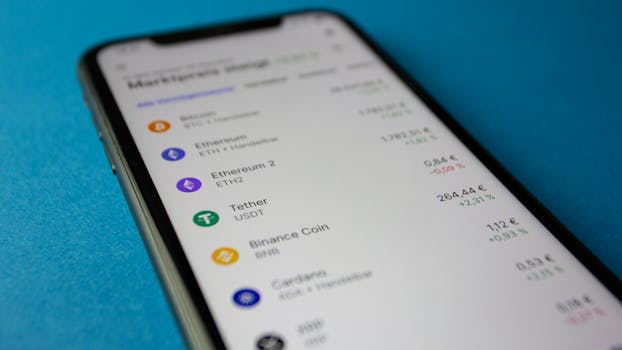
Navigating the Future: Emerging Trends in Fintech Technology
Fintech, or financial technology, has revolutionized the way we think about money and financial services. As technology continues to advance, we are seeing new and exciting trends emerge in the fintech space. In this article, we will explore some of the most significant emerging trends in fintech technology and how they are shaping the future of finance.
Introduction to Fintech

Fintech, or financial technology, refers to the use of technology to improve and automate financial services. This can include everything from mobile payments and digital wallets to blockchain and artificial intelligence. Fintech has been gaining momentum in recent years, with investment in the space reaching record highs. As a result, we are seeing a wide range of new and innovative fintech companies and products emerge.
Emerging Trends in Fintech

There are several emerging trends in fintech that are worth noting. These include:
- Mobile Payments: Mobile payments are becoming increasingly popular, with many consumers using their smartphones to make payments and transfer money.
- Blockchain: Blockchain technology is being used to create secure and transparent financial systems, including cryptocurrencies like Bitcoin and Ethereum.
- Artificial Intelligence: Artificial intelligence is being used to improve customer service and personalize financial products and services.
- Digital Banking: Digital banking is becoming more prevalent, with many banks and financial institutions offering online and mobile banking services.
- Robo-Advisors: Robo-advisors are automated investment platforms that use algorithms to provide investment advice and manage portfolios.
The Future of Fintech

As fintech continues to evolve, we can expect to see even more innovative products and services emerge. Some potential future trends in fintech include:
- Quantum Computing: Quantum computing has the potential to revolutionize the way we think about finance, with the ability to process complex financial models and simulations at speeds previously unimaginable.
- Internet of Things (IoT) Finance: The IoT has the potential to create new financial services and products, such as smart home insurance and connected car financing.
- Biometric Authentication: Biometric authentication, such as facial recognition and fingerprint scanning, is becoming more prevalent in fintech, providing an additional layer of security for financial transactions.
Conclusion

In conclusion, the future of fintech is exciting and rapidly evolving. As technology continues to advance, we can expect to see new and innovative products and services emerge. Whether you are a consumer, investor, or financial institution, it is essential to stay up-to-date with the latest trends and developments in fintech.
Focus Keyword: Fintech

Fintech is a term that refers to the use of technology to improve and automate financial services. It has revolutionized the way we think about money and financial services, and has created new opportunities for consumers, investors, and financial institutions.
What is Fintech?

Fintech is a broad term that encompasses a wide range of financial technologies, including mobile payments, digital wallets, blockchain, artificial intelligence, and more. It has the potential to create new and innovative financial products and services, and to improve the efficiency and security of financial transactions.
Benefits of Fintech

The benefits of fintech are numerous. It has the potential to:
- Increase Accessibility: Fintech can increase access to financial services, particularly for underserved populations.
- Improve Efficiency: Fintech can improve the efficiency of financial transactions, reducing the time and cost associated with traditional banking methods.
- Enhance Security: Fintech can enhance the security of financial transactions, using advanced technologies such as blockchain and biometric authentication.
Challenges Facing Fintech

Despite the many benefits of fintech, there are also challenges facing the industry. These include:
- Regulatory Uncertainty: The regulatory environment for fintech is still evolving, and can be unclear or inconsistent in some jurisdictions.
- Security Risks: Fintech companies and products can be vulnerable to security risks, such as hacking and data breaches.
- Adoption Rates: Fintech adoption rates can be slow, particularly among older or less tech-savvy consumers.
Real-World Examples of Fintech

There are many real-world examples of fintech in action. These include:
- Mobile Payments: Companies such as Apple and Google are offering mobile payment services, allowing consumers to make payments using their smartphones.
- Blockchain: Companies such as Bitcoin and Ethereum are using blockchain technology to create secure and transparent financial systems.
- Robo-Advisors: Companies such as Betterment and Wealthfront are offering automated investment platforms, using algorithms to provide investment advice and manage portfolios.
Conclusion

In conclusion, fintech is a rapidly evolving industry that has the potential to transform the way we think about money and financial services. With its many benefits, including increased accessibility, improved efficiency, and enhanced security, fintech is an exciting and innovative space that is worth watching.





